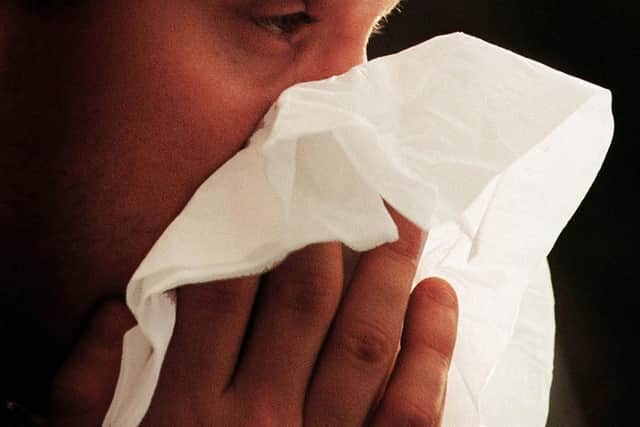Is your hay fever worse than ever this summer? The surprising reason why it’s so bad
and live on Freeview channel 276
For many of the estimated 16 million sufferers in the UK, it would seem based on the many threads peppering social media, those symptoms have been worse than ever this year.
There are a number of reasons why hay fever may be worse this summer than in years gone by.
Advertisement
Hide AdAdvertisement
Hide AdFor starters, the recent warm spell and the accompanying light winds have been the perfect conditions for the high pollen counts which cause so much misery.


According to the Met Office, the heavy rainfall in May might also be a factor, with a wetter spring increasing the amount of pollen production, though rainfall during spring as a whole this year was slightly down on the seasonal average.
Climate change could be playing a role too, with the Met Office saying that changes in temperature and rainfall may lengthen the UK pollen season, increase pollen concentrations and even potentially increase the hayfever-causing potency of pollen.
Meteorologists also say that climate change can alter the distribution of allergenic plants like ambrosia, or common ragweed, with a single ragweed plant able to produce a billion grains of pollen per season and its pollen causing strong allergic reactions.
Advertisement
Hide AdAdvertisement
Hide AdThe UK is also facing a threat from changes in the geographical distribution of allergenic plants, due to climate change, with invasive species such as ambrosia (common ragweed) being on the watch list. A single ragweed plant can produce a billion grains of pollen per season and its pollen causes strong allergic reactions.
Tree pollen occurs first, typically coming between late March and mid-May, while grass pollen, which affects around 80 per cent of people with hay fever, lasts from mid-May until July, and weed pollen is typically highest from the end of June to September.
The NHS has a number of tips for hay fever sufferers to reduce the symptoms, including putting vaseline around your nostrils to trap pollen, wearing wraparound sunglasses to keep pollen out of your eyes, and showering and changing your clothes after being outside to wash pollen off.
To check the latest pollen forecast where you live, click here.